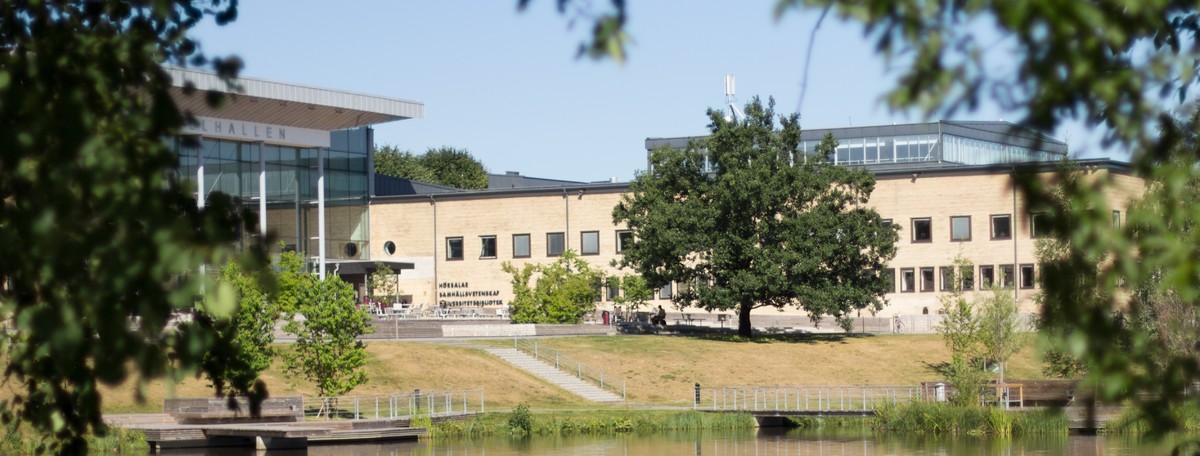Postdoctoral position in molecular parasitology - Hiring in process/Finished, not possible to apply
This advert is not available!
Umeå University, Faculty of Medicine
Umeå University is one of Sweden’s largest higher education institutions with over 41,500 students and about 4,600 employees. The University offers a diversity of high-quality education and world-leading research in several fields. Notably, the groundbreaking discovery of the CRISPR-Cas9 gene-editing tool, which was awarded the Nobel Prize in Chemistry, was made here. At Umeå University, everything is close. Our cohesive campuses make it easy to meet, work together and exchange knowledge, which promotes a dynamic and open culture.
The ongoing societal transformation and large green investments in northern Sweden create enormous opportunities and complex challenges. For Umeå University, conducting research about – and in the middle of – a society in transition is key. We also take pride in delivering education to enable regions to expand quickly and sustainably. In fact, the future is made here.
Are you interested in learning more? Read about Umeå university as a workplace
The Faculty of Medicine, which consists of 12 departments, is responsible for biomedical research and courses in the field of nursing and health care and has an extensive research and graduate education in more than 80 subjects.
The Department of Molecular Biology seeks a postdoctoral scientist to the project “A systematic structure-function analysis of essential conserved hypothetical proteins of malaria parasites”. The position is full-time for two years with access August of 2023 or by agreement.
Project description and work responsibilities
Malaria is caused by Plasmodium parasites whose genome encode ̴5000 genes. Out of these 30% code for proteins with no predicted function based on their amino acid sequence. A subset of these proteins is essential for parasite growth and thereby presents a catalogue of potential drug targets. Determination of protein structure can be used to delineate function, since proteins that perform same tasks have similar 3D shape. The recent arrival of the Deepmind AlphaFold tool predicts protein 3D structure in silico for entire organism proteomes including that of several Plasmodium species. This now offers a completely new avenue in determining gene function.
This project will use the EBI/EMBL AlphaFold Protein Structure Database and Dali Protein Structure Database Comparison Server to predict the function of 240 essential conserved hypothetical Plasmodium proteins. Based on in silico structure-functional predictions the successful candidate will select 10-20 proteins to study in-depth. Firstly, reverse genetics will be used to epitope-tag the proteins followed by microscopy and proteomics to study protein localisation and interaction partners. Secondly, the proteins will be expressed and biochemically characterised in vitro.
You will carry out experimental and bioinformatic work, design experiments, present your findings, write manuscripts, help supervising students and actively contribute to a collegial lab culture.
You will be based in the lab of Ellen Bushell at the Department of Molecular Biology, Umeå University. The Bushell lab is based at Department of Molecular Biology and is a part of The Laboratory of Molecular Infection Medicine Sweden (MIMS, http://www.mims.umu.se/), which is the Swedish node within the Nordic EMBL Partnership for Molecular Medicine. The project is co-supervised by Ronnie Berntsson at the Department of Medical Biochemistry and Biophysics.
Eligibility
A person who has been awarded a doctorate or a foreign qualification deemed to be the equivalent of a doctorate in life sciences (e.g. biology, biochemistry, medicine or biomedical sciences) is eligible for appointment as postdoctoral researcher. This eligibility requirement must be met no later than the time at which the appointment decision is made.
You should be highly motivated and able to work productively in a team as well as independently. Excellent communication skills for interacting effectively with senior colleagues and peers are required. Proficiency in written and spoken English also required. Great emphasis will be placed on personal suitability.
The successful candidate should have experience in molecular cloning methods such as CRISPR/Cas9 vector design and construction. You should also have experience in light and / or electron microscopy, or protein expression, localisation and interaction work.
Additional useful qualifications
Since appointment as a postdoctoral researcher is a career-development position for junior researchers, we are primarily interested in applicants who completed their doctoral degree no more than three years before the application deadline. If there are special reasons, an applicant who has completed their degree earlier than that may be considered. Special reasons include absence due to illness, parental leave, clinical practice, appointments of trust for a trade union organisation or other similar circumstances, and for relevant duties/assignments within the subject area.
Experience in cultivation and transfection of malaria parasites is highly desirable, and so is in vivo experiments using rodents. Experience in protein expression, structure biology or biochemistry is not required as training is available but is a desirable merit.
Application
The application must include:
- A brief description of your research interests and a statement describing why you are interested in the position.
- CV
- List of publications
- Degree certificate from doctoral studies and other relevant degrees
The application must be written in Swedish or English. The application must be made via our e-recruitment system Varbi and must be received latest 6 June 2023.
More information about the position
The appointment is a full-time, fixed-term position for two years in accordance with the terms of contract for fixed-term employment as a postdoctoral researcher.
For more information, please contact Dr Ellen Bushell (http://www.mims.umu.se/groups/ellen-bushell.html)
We look forward to receiving your application!
| Type of employment | Temporary position |
|---|---|
| Contract type | Full time |
| First day of employment | August 2023 or by agreement |
| Salary | Montly salary |
| Number of positions | 1 |
| Full-time equivalent | 100% |
| City | Umeå |
| County | Västerbottens län |
| Country | Sweden |
| Reference number | AN 2.2.1-929-23 |
| Contact |
|
| Union representative |
|
| Published | 16.May.2023 |
| Last application date | 06.Jun.2023 |

